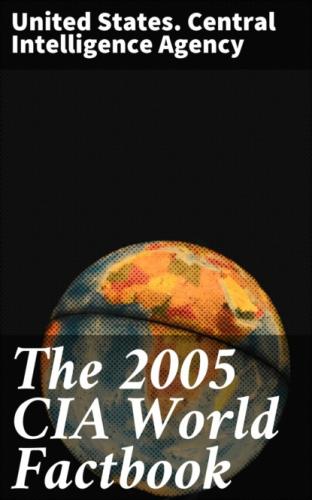unicameral National Assembly of People's Power or Asemblea Nacional
del Poder Popular (609 seats, elected directly from slates approved
by special candidacy commissions; members serve five-year terms)
elections: last held 19 January 2003 (next to be held in NA 2008)
election results: percent of vote - PCC 97.6%; seats - PCC 609
Judicial branch:
People's Supreme Court or Tribunal Supremo Popular (president, vice
president, and other judges are elected by the National Assembly)
Political parties and leaders:
only party - Cuban Communist Party or PCC [Fidel CASTRO Ruz, first
secretary]
Political pressure groups and leaders:
NA
International organization participation:
ACP, FAO, G-77, IAEA, ICAO, ICC, ICRM, IFAD, IFRCS, IHO, ILO, IMO,
Interpol, IOC, IOM (observer), ISO, ITU, LAES, LAIA, NAM, OAS
(excluded from formal participation since 1962), OPANAL, OPCW, PCA,
UN, UNCTAD, UNESCO, UNIDO, UPU, WCL, WCO, WFTU, WHO, WIPO, WMO,
WToO, WTO
Diplomatic representation in the US:
none; note - Cuba has an Interests Section in the Swiss Embassy,
headed by Principal Officer Dagoberto RODRIGUEZ Barrera; address:
Cuban Interests Section, Swiss Embassy, 2630 16th Street NW,
Washington, DC 20009; telephone: [1] (202) 797–8518
Diplomatic representation from the US: none; note - the US has an Interests Section in the Swiss Embassy, headed by Principal Officer James C. CASON; address: USINT, Swiss Embassy, Calzada between L and M Streets, Vedado, Havana; telephone: [53] (7) 833–3551 through 3559 (operator assistance required); FAX: [53] (7) 833–3700; protecting power in Cuba is Switzerland
Flag description:
five equal horizontal bands of blue (top and bottom) alternating
with white; a red equilateral triangle based on the hoist side bears
a white, five-pointed star in the center; design influenced by the
US flag
Economy Cuba
Economy - overview:
The government continues to balance the need for economic loosening
against a desire for firm political control. It has undertaken
limited reforms to increase enterprise efficiency and alleviate
serious shortages of food, consumer goods, and services. A major
feature of the economy is the dichotomy between relatively efficient
export enclaves and inefficient domestic sectors. The average
Cuban's standard of living remains at a lower level than before the
depression of the 1990s, which was caused by the loss of Soviet aid
and domestic inefficiencies. The government in 2004 strengthened its
controls over dollars coming into the economy from tourism,
remittances, and trade.
GDP (purchasing power parity):
$33.92 billion (2004 est.)
GDP - real growth rate:
3% (2004 est.)
GDP - per capita:
purchasing power parity - $3,000 (2004 est.)
GDP - composition by sector: agriculture: 6.6% industry: 25.5% services: 67.9% (2004 est.)
Labor force: 4.55 million note: state sector 78%, non-state sector 22% (2004 est.)
Labor force - by occupation:
agriculture 24%, industry 25%, services 51% (1999)
Unemployment rate:
2.5% (2004 est.)
Population below poverty line:
NA
Household income or consumption by percentage share:
lowest 10%: NA
highest 10%: NA
Inflation rate (consumer prices):
3.1% (2004 est.)
Investment (gross fixed):
11.2% of GDP (2004 est.)
Budget:
revenues: $18.01 billion
expenditures: $19.06 billion, including capital expenditures of NA
(2004 est.)
Agriculture - products:
sugar, tobacco, citrus, coffee, rice, potatoes, beans; livestock
Industries:
sugar, petroleum, tobacco, construction, nickel, steel, cement,
agricultural machinery, pharmaceuticals
Industrial production growth rate:
1.4% (2004 est.)
Electricity - production:
14.41 billion kWh (2002)
Electricity - production by source: fossil fuel: 93.9% hydro: 0.6% nuclear: 0% other: 5.4% (2001)
Electricity - consumption:
13.4 billion kWh (2002)
Electricity - exports:
0 kWh (2002)
Electricity - imports:
0 kWh (2002)
Oil - production:
77,900 bbl/day (2004 est.)
Oil - consumption:
163,000 bbl/day (2001 est.)
Oil - exports:
NA
Oil - imports:
NA
Oil - proved reserves:
532 million bbl (1 January 2002)
Natural gas - production:
600 million cu m (2001 est.)
Natural gas - consumption:
600 million cu m (2001 est.)
Natural gas - exports:
0 cu m (2001 est.)
Natural gas - imports:
0 cu m (2001 est.)
Natural gas - proved reserves:
42.62 billion cu m (1 January 2002)
Current account balance:
$-185.1 million (2004 est.)
Exports:
$2.104 billion f.o.b. (2004 est.)
Exports - commodities:
sugar, nickel, tobacco, fish, medical products, citrus, coffee
Exports - partners:
Netherlands 22.7%, Canada 20.6%, China 7.7%, Russia 7.5%, Spain
6.4%, Venezuela 4.4% (2004)
Imports:
$5.296 billion f.o.b. (2004 est.)
Imports - commodities:
petroleum, food, machinery and equipment, chemicals
Imports
